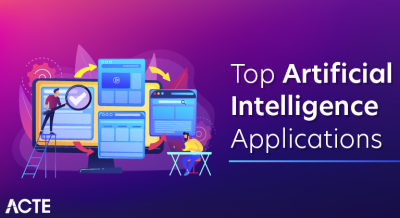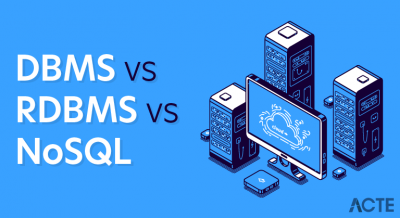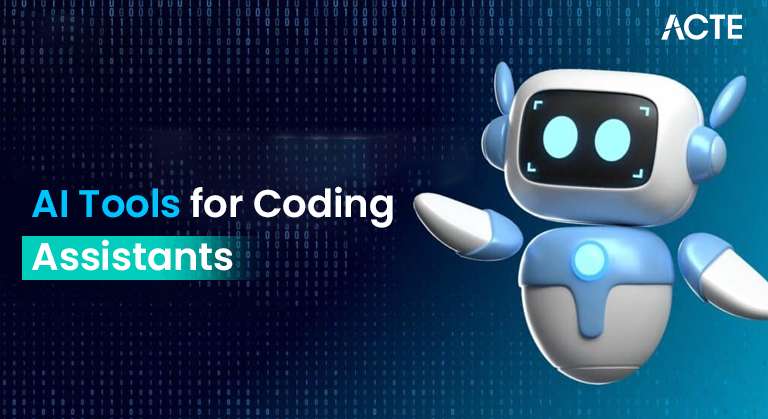
- GitHub Copilot
- Tebnine
- Codium
- Amazon CodeWhisperer
- DeepCode
- Sourcery for Python
- ChatGPT for Code Generation
- Codex (OpenAI)
- Replit AI
- AI for Automated Testing
- AI for Code Documentation
- Conclusion
GitHub Copilot
GitHub Copilot is an AI-driven code completion tool developed by GitHub in collaboration with OpenAI. Powered by OpenAI’s Codex model, it provides real-time, context-aware code suggestions, making it an essential tool for developers. Copilot supports a wide range of programming languages, including Python, JavaScript, TypeScript, and Go, and can complete entire functions or boilerplate code. It seamlessly integrates with popular IDEs like Visual Studio Code, improving developer productivity by automating repetitive tasks during Data Science Training. In addition to code completion, Copilot helps developers learn new coding patterns, frameworks, and best practices. This makes it a valuable asset for both beginners looking to expand their skills and experienced developers seeking to streamline their workflow and improve coding efficiency.
To Explore Data Science in Depth, Check Out Our Comprehensive Data Science Course Training To Gain Insights From Our Experts!
Tebnine
Tabnine is an AI-powered code completion tool that boosts coding efficiency using advanced deep learning models. By predicting and suggesting code snippets based on context, it significantly improves developer productivity. Tabnine supports a wide range of programming languages, including Java, Python, C++, and TypeScript, making it a versatile assistant for software development across different tech stacks. It integrates seamlessly with popular IDEs such as VS Code, IntelliJ, and PyCharm, providing a smooth development experience.
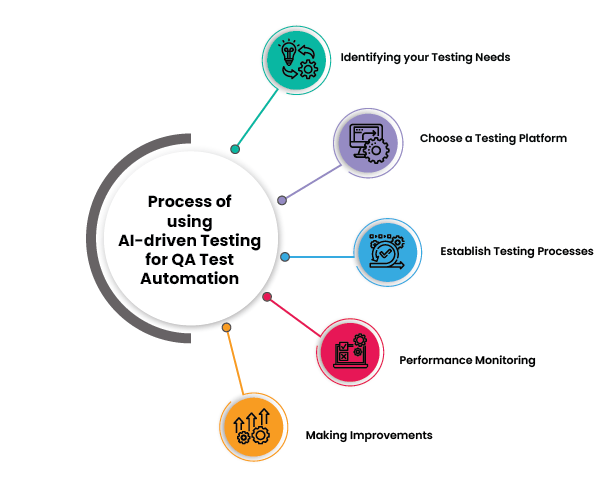
Tabnine offers both cloud-based and on-premise deployment options, ensuring organizations can maintain data privacy and security. Additionally, its ability to learn from custom repositories allows businesses to tailor the AI assistant to their specific needs, further improving its relevance and effectiveness in enhancing development workflows. With these capabilities, Tabnine proves to be a powerful tool for developers seeking to increase productivity and streamline their coding processes.
Codium
- IDE Integration: Codium integrates seamlessly with popular IDEs like VS Code, JetBrains, and Jupyter Notebook, making it a valuable tool for students pursuing an MTech in AI and ML.
- AI-Powered Assistance: Codeium offers real-time code suggestions, completions, and refactoring using advanced AI.
- Wide Language Support: It supports over 70 programming languages, making it versatile for developers across different tech stacks.
- Multi-Line Suggestions: One of its standout features is multi-line code completion, which significantly boosts coding efficiency.
- Natural Language Prompts: Developers can describe desired functionality in plain English and receive accurate, context-aware code snippets.
Amazon CodeWhisperer
- Real-Time Code Suggestions: Amazon CodeWhisperer provides intelligent, real-time coding assistance powered by AI.
- Language Support: It natively supports Python, Java, and JavaScript, catering to widely-used programming environments.
- Security Focus: A standout feature is its ability to detect vulnerabilities and suggest security improvements in code, which is particularly useful in Natural Language Processing projects.
- Cloud Integration: Designed by AWS, CodeWhisperer integrates smoothly with AWS services, making it ideal for cloud-based development.
- IDE Compatibility: It works seamlessly with popular IDEs like AWS Cloud9 and JetBrains, enhancing workflow efficiency.
- Productivity Enhancement: The tool is built to boost developer productivity while maintaining code quality and security.
- AI-Powered Assistant: ChatGPT is built on OpenAI’s GPT model, offering intelligent support for coding tasks.
- Code Generation: It can generate complete code snippets from natural language prompts, useful for all skill levels.
- Debugging Support: ChatGPT helps identify and fix errors, simplifying the debugging process.
- Refactoring Help: It provides suggestions to improve code structure, readability, and efficiency, making it an excellent tool for Data Science for Non-Tech Students.
- Code Explanation: ChatGPT can break down and explain complex code, aiding understanding and learning.
- Multi-Language Support: It supports a wide range of programming languages and frameworks.
- Versatile Use Cases: From quick code fixes to in-depth development help, it’s a go-to tool for many programming challenges.
- Purpose-Built Model: Codex is a language model by OpenAI specifically trained on source code.
- Powers GitHub Copilot: It is the engine behind GitHub Copilot, delivering intelligent coding assistance.
- Multi-Language Support: Codex supports numerous programming languages, offering broad development flexibility.
- Natural Language to Code: It can generate full functions, classes, or scripts from simple text prompts.
- Code Understanding: Developers use Codex to comprehend unfamiliar codebases and accelerate onboarding.
- Refactoring & Optimization: Codex assists with improving legacy code and enhancing performance.
- Custom Tool Integration: Its API allows businesses to build tailored AI development tools, making it highly adaptable for Data Science Training.
- Consistency: Automated documentation ensures consistent and standardized documentation across projects.
- Code Analysis: These tools analyze code logic to provide clear and concise explanations, improving overall code readability.
- Time-Saving: AI-driven documentation reduces the time developers spend on writing documentation, allowing them to focus on coding.
- Improved Maintainability: Well-documented code is easier to understand and maintain, benefiting long-term project development.
- Enhanced Productivity: By automating documentation, development teams can prioritize coding while ensuring clear and understandable codebases, especially during Data Science Training.
- AI-Powered Documentation: Tools like Mintlify, Codiga, and DocuWriter automate the generation of function descriptions, docstrings, and inline comments.
Interested in Obtaining Your Data Science Certificate? View The Data Science Course Training Offered By ACTE Right Now!
DeepCode
DeepCode is an AI-powered code review tool that leverages machine learning to detect potential issues and suggest intelligent fixes. Unlike traditional static analysis tools, DeepCode learns from a wide range of codebases, offering highly accurate and context-aware recommendations. It supports several popular programming languages, including JavaScript, Java, Python, and TypeScript.
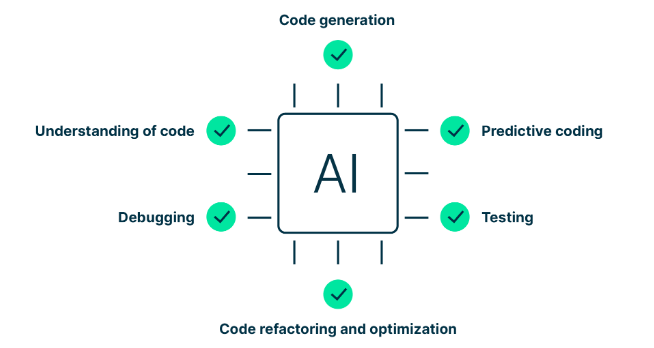
DeepCode integrates seamlessly with platforms like GitHub, GitLab, and Bitbucket, enabling developers to receive real-time feedback directly within their existing workflows. Its advanced analysis capabilities help identify not just coding errors, but also security vulnerabilities and performance concerns. This makes DeepCode a powerful asset for improving code quality, maintainability, and overall development efficiency in modern software projects.
Sourcery for Python
Sourcery is an AI-powered refactoring tool tailored specifically for Python developers. It delivers real-time suggestions aimed at improving code readability, reducing complexity, and enhancing overall efficiency. By analyzing Python code as it’s written, Sourcery provides intelligent, automated refactoring recommendations that help developers produce cleaner, more maintainable code, which is essential for Hypothesis Testing in Data Science. It integrates seamlessly with popular IDEs like VS Code, PyCharm, and IntelliJ, ensuring a smooth and uninterrupted development workflow. Sourcery not only highlights areas for improvement but also offers actionable suggestions aligned with Python best practices. Its instant feedback mechanism enables developers to continuously enhance their code quality without breaking their focus. Whether working on small scripts or large applications, Sourcery proves to be a valuable companion for Python programmers who want to write high-quality, professional-grade code with ease.
ChatGPT for Code Generation
Looking to Master Data Science? Discover the Data Science Masters Course Available at ACTE Now!
Codex (OpenAI)
Replit AI
Replit AI is an advanced AI-powered coding assistant built directly into the Replit development platform. It offers a range of features including intelligent code autocompletion, real-time debugging, and automated refactoring, all designed to enhance the coding experience. Supporting multiple programming languages, Replit AI provides context-aware suggestions based on the entire structure of a user’s project, ensuring accurate and relevant recommendations. It also assists with generating documentation and handling errors, making it especially helpful for beginners who are still learning best practices. By simplifying complex tasks and offering guidance throughout the development process, Replit AI helps users write cleaner, more efficient code. Whether you’re building a simple script or a full-scale application, Replit AI streamlines the workflow and empowers developers to boost productivity and sharpen their programming skills.
AI for Automated Testing
AI-powered automated testing tools like Testim, Mabl, and Functionize utilize machine learning to generate, maintain, and optimize test scripts. These tools analyze patterns, detect anomalies, and suggest fixes, leading to significant improvements in testing efficiency. By reducing the need for manual intervention, AI-powered testing accelerates the testing process while enhancing accuracy. As these tools continuously learn from test executions, they adapt to evolving codebases, ensuring that the software quality remains robust throughout development, which is crucial when you Learn Data Science. This adaptability makes them particularly valuable for agile development teams, where speed and flexibility are crucial. Additionally, AI-driven testing solutions integrate seamlessly with continuous delivery pipelines, enabling faster and more reliable releases. These advancements allow development teams to catch issues early, improve code quality, and streamline the overall testing process, making AI-based testing a powerful asset for modern software development workflows.
Preparing for Data Science Job? Have a Look at Our Blog on Data Science Interview Questions & Answer To Ace Your Interview!
AI for Code Documentation
Conclusion
AI-powered coding assistants are transforming the software development landscape by significantly boosting productivity, reducing errors, and enhancing code quality. Tools like GitHub Copilot and Tabnine offer intelligent code completion, helping developers write code faster while minimizing mistakes. AI-driven testing tools, such as Testim, Mabl, and Functionize, automate test script generation and optimize testing workflows, improving testing efficiency and accuracy. Additionally, AI-powered documentation tools like Mintlify and Codiga automate the creation of function descriptions, docstrings, and comments, making code easier to understand and maintain. As AI technology continues to evolve, we can anticipate even more advanced coding assistants capable of tackling increasingly complex tasks, such as real-time refactoring, adaptive debugging, and automatic performance optimization. These innovations will further streamline the development process, making it faster, more efficient, and more reliable. For developers and organizations, staying informed about the latest AI tools and incorporating them into their workflows will be key to maintaining a competitive edge and ensuring high-quality software development. Embracing AI in development processes is no longer just an option but a necessity for modern, efficient software development.



